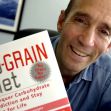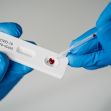In the middle of the coronavirus pandemic, Sorrento Therapeutics, Inc. (Sorrento), a San Diego-based biopharmaceutical company, issued a press release saying it “might” have discovered a cure for COVID-19. The release was picked up by Fox News and BioSpace.com. Sorrento’s stock price immediately rose steeply, but declined a week later when the company provided additional information about its discovery and finances. A class action suit by plaintiffs Andrew R. Zenoff and a group of investors who alleged securities fraud was filed, but the district court dismissed it, ruling that plaintiffs failed to state a valid legal claim.
Class members appealed, but the Ninth Circuit affirmed the ruling of Presiding District Judge Anthony Battaglia of the U.S. District Court for the Southern District of California. Battaglia found the complaint did not provide the “requisite strong inference of scienter” when Sorrento released news of the discovery of a drug called STI-1499. Importantly, Zenoff could not prove that Sorrento made its potential cure announcement in order to manipulate its stock prices and that defendants had a “culpable state of mind” when they announced a potential cure. In other words, both the district court and the Ninth Circuit believed that Sorrento had a good faith belief in the potential of its new drug.
Writing for the Ninth Circuit Court of Appeal on March 25, Circuit Judge Consuelo M. Callahan affirmed Battaglia’s ruling with concurrences by Circuit Judge Richard C. Tallman and District Judge Robert S. Lasnik of the Western District of Washington, sitting by designation.
Zenoff purchased multiple shares of Sorrento common stock between May 15 and May 21, 2020. He claimed Sorrento violated both the Exchange Act and the Securities and Exchange Commission’s (SEC) Rule 15b-5. The Exchange Act of 1934 regulates financial markets “to ensure a transparent and fair environment” for investors, and Rule 15b-5 applies to anyone who commits securities fraud by intentionally misrepresenting material information during trading.
Callahan’s opinion begins with a description of Sorrento’s business and explains that three separate documents issued on May 15 about the potential COVID cure were the basis of the securities fraud complaint. First, there was the press release headlined, “STI-1499, A Potent Anti-SARS-COV-Antibody Demonstrates Ability to Completely Inhibit In Vitro Virus Infection In Preclinical Studies.” The second document, which was carried by Fox News, was headlined, “California biopharmaceutical company claims coronavirus antibody breakthrough.” The third was a news story in BioSpace.com, a pharmaceutical blog, headlined, “Sorrento IDS Antibody Against COVID-19 That Appears 100% Effective.”
Things took a turn for the worse the following week when several news outlets began to question Sorrento’s discovery. For example, an article in Yahoo!Finance questioned the results of an antibody test and another in Hinderberg Research quoted experts and former employees who questioned Sorrento’s claims.
Not surprisingly, these articles affected Sorrento’s stock prices. The day after the press release ran, Sorrento stock increased by 243.5% to $9 per share, and the volume of its common stock trading went up 78 times. However, Sorrento had also been experiencing a number of financial difficulties; a report from its independent auditor noted its “high cash burn rate,” and an SEC filing “indicated that if it could not raise sufficient financing…it would have to shut down.” These developments and an interview by Yahoo!Finance with Chief Executive Officer Henry Ji saw the stock price fall to $4.67 per share.
Zenoff sued Sorrento on behalf of all those who purchased common stock the week of the initial potential cure announcement. He alleged securities fraud and emphasized Ji’s media statement that said, “We want to emphasize there is a cure. There is a solution that works 100 percent,” and “if we have the neutralizing antibody in your body, you don’t need the social distancing. You can open up a society without fear.”
District Court Judge Battaglia found that statements such as these were not fraud but mere “statements of corporate optimism” and “puffery” which “cannot state an actionable material misstatement of fact under federal securities law.” He said that there was “nothing about the representation of STI-1499’s success that is inaccurate or misleading.” He also reviewed all of Fox News’ reports that carried additional cautionary information about the need for approval by the Food and Drug Administration before the drug could become available to the public.
The Ninth Circuit opinion then shifted to a discussion of scienter. The opinion said that because Sorrento had disclosed its financial difficulties and the need for further testing and approval by the Food and Drug Administration (FDA), statements by Sorrento failed to show “their knowledge of purported falsity.” Circuit Judge Callahan then went into a detailed discussion of the six elements necessary to prove an SEC violation. There must have been a material misrepresentation of omission by Sorrento, scienter, a connection between the misrepresentation of omission and the purchase or sale of a security, reliance by the plaintiffs upon the misrepresentation or omission, economic loss, and loss causation.
Judge Callahan wrote that under Federal Rule of Civil Procedure 12(b) (6), complaints can be dismissed for either a “(1) lack of a cognizable legal theory or (2) insufficient facts under a cognizable legal claim.” The Ninth Circuit found both. Callahan said that “there was no promise of an “immediate 100% cure,” and that Sorrento personnel had said that more testing, outside a laboratory, was needed. She said that many “promising discoveries” suffered the same fate.
As a result, the opinion concluded that “Zenoff’s claim of blatant falsity did not survive strict scrutiny.” Several media interviews made it clear that Sorrento executives clearly disclosed the need for more studies and the plaintiff “has not shown that Sorrento’s promotion of its development of STI-1499 created a strong inference that Sorrento intended to manipulate the price of its stock.”
The opinion concluded that Sorrento’s “enthusiastic announcement” about the development of its new drug as a possible cure for COVID-19 caused the price of Sorrento’s stock to rise sharply for about a week. But Zenoff’s lawsuit that said Sorrento falsely claimed the new drug was a 100% cure was made with “an intent to manipulate the price of the stock.” However, Callahan wrote, the law requires a showing of both falsity and scienter, which were not demonstrated. Zenoff’s pleading was inadequate and did not show that Sorrento’s statements “were false as opposed to overstated.” The district court’s dismissal was affirmed.






